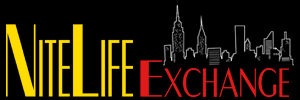
By Marilyn Lester***The thing about a window is that the view goes two ways: you can look out of a window for a glimpse of the world outside, or you can peer into a window to catch a slice of life in the interior view. Windows, by Tawni O’Dell, adapted from the audio drama/podcast series “Closing the Distance,” offers both views. In eight discrete scenes—most of them monologues—the storytellers share their experiences  from within their space, while audience members are given the opportunity to gaze into the window of their lives. The effect is mesmerizing. What unfolds is a sharp-witted dramedy of beautifully-rendered, compelling substance.
from within their space, while audience members are given the opportunity to gaze into the window of their lives. The effect is mesmerizing. What unfolds is a sharp-witted dramedy of beautifully-rendered, compelling substance.
Those stories that comprise Windows are about the COVID-19 pandemic, specifically the period of lockdown that stopped the world in its tracks. That slice of time still resonates as we continue to reflect on new paradigms birthed during that experience. O’Dell has used this circumstance of isolation as a springboard to write about the existential, universal truths of human existence. We can relate—the characters that inhabit the play encompass people we know. Perhaps we see ourselves. The actors who portray them—Avantika, Craig Bierko, Tony Danza, Erin Darke, ,Jeffrey Donovan, Tovah Feldshuh, Adam Kantor, Carolyn McCormick, Jesse Nager, Tonya Pinkins—are so authentic in their respective roles its easy to forget Windows is a theatrical enterprise: the engagement is that direct and that personal. Direction by Mitchell Maxwell doesn’t miss a beat in the translation of the written word to gripping action. 
Superbly effective is the set and utilization of The Town Hall stage. A large construct, a geometric form suggesting a window (by Rob Bissinger and Anita La Scala) defines the acting space. Lighting (Jamie Roderick) is adjusted to enhance each story as the scene is played out. Essentially, propless, the focus of each segment is squarely on its actor and the narrative, aided by crisp sound delivery (Bill Toles). Costumes (David Woolard) heighten the sense of reality that these storytellers are folks we might know.
Maxwell, in production notes, has noted the stories of Windows are a result of “the anxieties and PTSD that crept into our psyches and took up a sort of permanent residence.” Rich with ideas, Windows opens with “Being Seen,” a view into (white) privilege, with Carolyn McCormick as The Wife. It seems that wealth gives no advantage when there are very few options to utilize it or use it as a distraction. The playing field becomes blindingly level; rich or poor, one’s interior life comes down to coping with emotional and intellectual turmoil. By contrast, a struggling shop owner in “National  Pastime,” The Owner (Tonya Pinkins) and The Protestor (Craig Bierko), engage in larger societal questions centered on systemic racism. Can there ever be an answer to this issue? That this segment ends with Pinkins singing a blues number speaks volumes about the answer.
Pastime,” The Owner (Tonya Pinkins) and The Protestor (Craig Bierko), engage in larger societal questions centered on systemic racism. Can there ever be an answer to this issue? That this segment ends with Pinkins singing a blues number speaks volumes about the answer.
In “Second Thoughts,” Tony Danza, The Drinker, completely inhabits a “regular guy,” whose alcohol dependency is a provocative examination of an addict’s magical thinking. Tovah Feldshuh, an actor of uncommon depth, appears in two segments, both of which address death (yet even in its most serious moments, O’Dell’s wit and canny use of humor never lets Windows become morose). In “Windows,” Avantika as The Fledgling, spars over the ethics of keeping a caged bird with “The Neighbor,”  Feldshuh. What is freedom, this story addresses, but the unresolved conversation is as terminal as is the fate of The Neighbor, who we learn has COVID and will likely die. In “Nurse #5,” Feldshuh, The Grandmother, gives a tour-de-force performance as the mother of a dedicated hospital nurse, herself a mother, whose duty in a COVID ward results in her death. That she carried the script in hand throughout can almost be forgiven. Not too many actors “off book” can give the kind of performance that Feldshuh did, inhabiting the character with a depth that was wrenching and breathtaking.
Feldshuh. What is freedom, this story addresses, but the unresolved conversation is as terminal as is the fate of The Neighbor, who we learn has COVID and will likely die. In “Nurse #5,” Feldshuh, The Grandmother, gives a tour-de-force performance as the mother of a dedicated hospital nurse, herself a mother, whose duty in a COVID ward results in her death. That she carried the script in hand throughout can almost be forgiven. Not too many actors “off book” can give the kind of performance that Feldshuh did, inhabiting the character with a depth that was wrenching and breathtaking.
The sum total of Windows offered a thrilling theatrical experience without a misstep. By the last scene, the presentation started to become overly long, but the quality of writing, acting and storytelling never ceased to be absorbing and engaging. Windows showcases and breathes life into the natural human impulse to tell the story. It’s a play that deserves to be seen and experienced by a wide audience.
Photos by David Zayas Jr.






